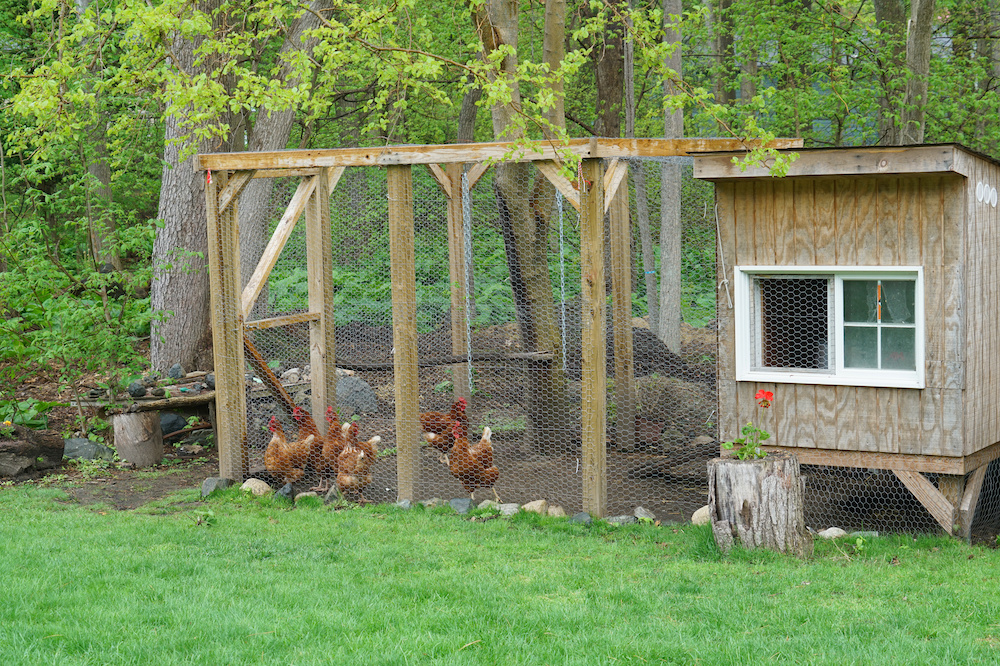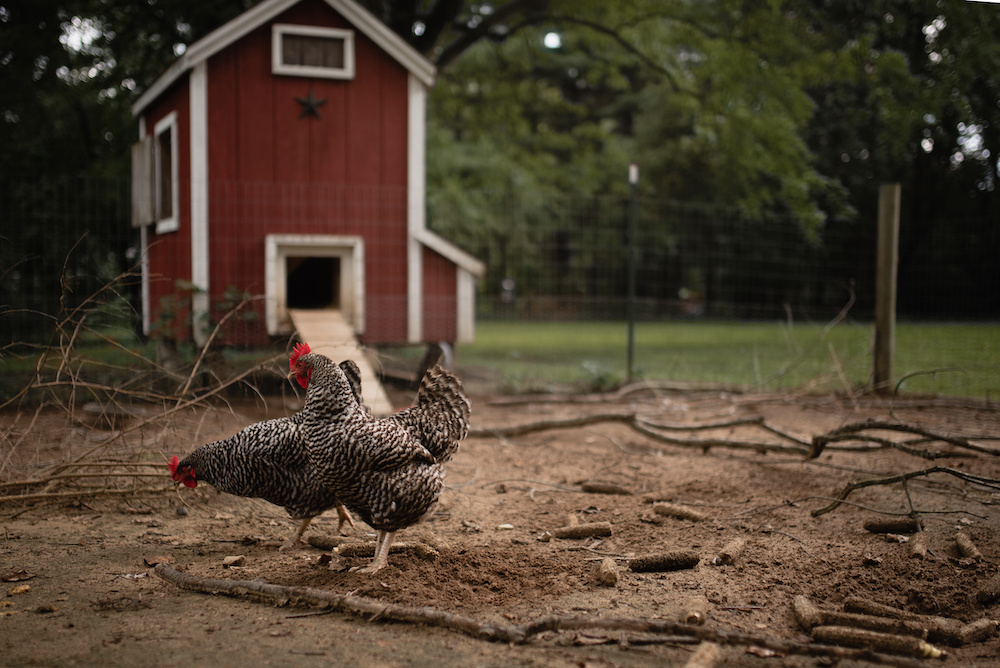Snake-Proofing Your Chicken Coop: A Comprehensive Guide
While it’s true that there is no other predator that can control rodents better than snakes, they can quickly overrun your farm or yard. Worse, they can get to the areas they shouldn’t be, such as your chicken coop.
Before the worst scenario happens, make sure to follow this guide on how to keep snakes out of chicken coops.
Signs You Might Have a Snake in the Coop
First of all, you must know how to detect the presence of snakes in your yard or coop. Here are the tell-tale signs:
- Your chickens don’t lay eggs in the coop. One major sign to watch out for is when your chickens lay eggs on the floor or outdoors rather than in the nest box.
- Missing chickens. Yes, very large snakes can eat a whole chicken too.
- Broken or crushed eggs. This usually happens due to the weight of the snake.
- Missing eggs and chicks. While snakes come to hen houses usually in pursuit of mice and rats, baby chicks also make yummy treats for them.
- Dead chickens with wet heads. This indicates that a snake tried to swallow a chicken but gave up because it’s too big.
- Gopher or mice holes. If rodents are lurking in the coop, there’s a big chance that there are snakes nearby too.
If you see or suspect that there’s a snake inside the coop, call an expert if you don’t know or you’re too scared to handle it.
What Kind of Snake Eats Chicken Eggs?
In the United States, five species of snakes are known to eat chicken eggs and baby chicks. They are the rat snakes, king snakes, black snakes, milk snakes, and chicken snakes. Fortunately, none of these are poisonous to humans. Some of them bite, but they don’t have venom.
How To Keep Snakes Out of Chicken Coops
Keeping snakes out of the chicken coop can be a tricky task, but it’s doable. Follow these steps:
Cover the holes.
This is the first and most important step is to secure your coop. Inspect holes where a snake can fit through. Normally, these are holes that are larger than 1/2 inch.
Next, cover the holes with a hardware cloth. This material cuts easily and is sturdy enough to resist rodent bites.
Keep the coop elevated.
Raising the floor of your chicken coop, even by just a few inches, can help prevent access of snakes through the rodent burrows. This strategy also works against rats that love to feed frenzy on eggs and chicks too. Just make sure that the floor and walls of the coop are properly sealed. Check for any gaps or access points and repair them immediately.
Install a coop apron.
Aside from raising the floor, you can also install a coop apron to snake-proof the chicken coop. Remember that even though snakes can’t dig holes, they can get access to your coop through the burrows. You can cover the fence with dirt, sand, or gravel to hide it.
Get rid of rodents.
As mentioned earlier, snakes are typically in the hunt for rodents. It’s just that they can’t resist those crackleberries inside the coop. That said, a very effective tip on how to keep snakes out of chicken coops is to keep rodents at bay.
How do you keep the chicken coop rodent-free? Here are some suggestions:
- Block all access to food and water, either by bringing in the chicken feeder at night or using a mouse-proof feeder. Alternatively, you can use a treadle feeder. This one has a lid that opens when a hen stands on the treadle step.
- Use snap traps and other forms of rodent control.
- Keep mice from coming back by sealing off cracks or holes with hardware cloth. You can also cover holes or weak spots in the wood.

More Tips to Keep Your Yard Snake Free
Use Snake Traps
An effective and humane way of keeping snakes out of chicken coop is by using snake traps. These devices come in many forms, and they usually work by using a pre-scented glue board.
Alternatively, you can use a minnow trap. It’s a cheap yet effective trap that doesn’t include using glue inserts. Rather, you will use food like eggs or meat, to attract the snake into the cage.
Install Snake Fences
This option might require a costly investment, but it offers long-term protection against snakes and other wildlife.
To build a snake fence around your yard, make sure to:
- Dig a trench about six inches deep. Better yet, bury the base of the fence in a barrier of concrete.
- Use vinyl as it has a smooth surface that prevents snakes from climbing up.
- Eliminate gaps and ensure that the fence panels fit tightly to the posts.
- Remove external aids like a tree close to the fence.
- Keep your snake fence well-maintained. Keep an eye for new gaps or holes and fix the damage immediately to prevent sneaky snakes from entering.
Fix up Your Yard
Keeping your yard tidy is one of the best ways to keep snakes from reaching your chicken coop. As you may know, snakes like to hide in tall grass, woodpiles, leaves, and clutter. That said, you may want to clear any brush, debris, or other objects near the coop. By eliminating their hiding spots, you can easily drive snakes away.
If your yard or garden is prone to snakes, a few changes in the layout and design can be very helpful as well. Do note that water features and landscaping make an ideal “home” for vermins so they must be carefully planned.
Add Guinea Fowls to Your Flock
Guinea fowls are an excellent way to protect your yard and chicken coops from uninvited snakes. In a flock, a guinea fowl will make a loud sound to alert you that there’s a snake. Plus, it won’t stop pursuing snakes, up to the point of killing them.
With proper introduction, your guinea fowls should get along well with your flock.
Invest in a Snake-Proof Coop
You may also purchase a coop that is already snake-proofed. It’s typically made with tightly woven floor mesh and fly screens on all side panels for optimal protection.
Apply Chemical Snake Repellents
Another option for keeping snakes out of chicken coop is to use chemical repellents. Now, this is a bit complicated so we’re going to discuss them in detail next.
Do Snake Repellents Work?
You may have come across commercial snake repellents that contain high amounts of sulfur. However, there’s a growing debate on whether or not they are effective.
While many people claim that sulfur does keep snakes away, studies suggest that snakes don’t easily get bothered with high levels of sulfur.
If you decide to use snake repellents to protect your coop, make sure to apply the other tips we mentioned for the best protection.
You may also hear about mothballs as another option for keeping snakes away. Unfortunately, they don’t work. Worse, mothballs can do more harm than good to your chicken, especially if they are eaten by your hens. In some studies, 30% of chickens that consumed mothballs died or became severely ill.
Is There a Snake Repellent Safe for Chickens?
Yes, there are plenty of snake repellants that are safe for use around chickens, as well as people, pets, and plants. If using a commercial repellant, look for a product that is registered with the Environmental Protection Agency. This certification ensures that the product will not have any adverse effects on humans or the environment when used correctly.
There are also such things as electronic snake repellents which work by emitting ultrasound and vibrations up to 20 meters.
You can also make a DIY snake repellant using a mixture of clove and cinnamon oil. Pour it into a spray bottle and spray around the coop. Alternatively, mix lime and hot pepper or peppermint oil and pour it around the perimeter of your property, yard, or chicken coop.
Lastly, consider planting lemongrass and marigolds near your chicken coop as they are known to repel snakes.
Important Reminders When Dealing With Snakes
It may be tempting to poison snakes, especially if they have made massive damage to your flock. However, these reptiles remain an important part of the ecosystem and are protected from indiscriminate killings.
Therefore, the best way to deal with snakes is to use a trap. Experiment with different snake traps, such as those we mentioned earlier.
Do note that in some areas, you will need permission from the local animal control agency before you can release a snake into the wild.
How To Keep Snakes Away From Chicken Coop: Conclusion
Snakes love to feast on eggs, chicks, and occasionally adult hens. That said, these predators are a threat to your thriving flock. Fortunately, there are many proven approaches on how to keep snakes away from chicken coops.
Start by snake-proofing your coop. This can be done by eliminating potential sources of food and shelter, fixing entry points such as holes and burrows, and keeping your yard clean.
Finally, you can use snake traps, repellents, and other snake deterrent products to keep the vermin at bay.
Contents

